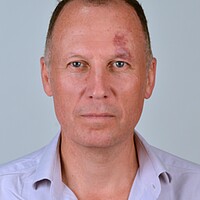Putin and the pontiff: Not as odd a couple as you might think
| Rome
They made a distinctly odd couple, but Pope Francis and Vladimir Putin found common ground yesterday when they met at the Vatican, discussing their shared opposition to military intervention in Syria and the grave threats faced by Christian communities across the Middle East.
The Russian president flew into Rome on Monday at the start of a two-day trip which today took him to Trieste, in northeastern Italy, to sign trade deals with Italian officials.
But it was his audience with the South American pope which garnered the most interest, with Mr. Putin basking in the glow of a pontiff who has won plaudits around the world for his down-to-earth manner and outspoken concern for the poor, the disenfranchised, and the downtrodden.
Putin swept into the Vatican in a cavalcade of official limousines and was about 45 minutes late for his meeting with Pope Francis, a breach of protocol that the Russian delegation blamed on a delayed flight and Rome’s notoriously gridlocked traffic.
During the 35-minute audience, Putin thanked the pontiff for a letter he sent to the Group of 20 meeting in St. Petersburg two months ago, in which the pope urged world leaders to abandon the "futile pursuit" of a military solution in Syria – a position which chimed with the Russian leader’s opposition to intervention by the US and its allies.
A persistent schism
The two men also discussed the unrest and dislocation faced by Christians in the Middle East – a theme that Pope Francis has commented on several times in recent weeks.
“Mention was made of the critical situation faced by Christians in some regions of the world, as well as the defence of and promotion of values regarding the dignity of the person, and the protection of human life and the family,” the Vatican said in a statement.
“[Putin] presented himself as the defender of Christianity in the Islamic world,” said an opinion piece in Corriere della Sera, Italy’s leading daily newspaper.
Syria and the plight of Christians in the Middle East “happen to be two issues on which they have a lot of agreement,” says John Thavis, an analyst and author who has covered the Vatican for 30 years. “When politicians meet the pope, they try to highlight what they agree on. I think there was more in it for Putin than for Francis.”
But enduring tensions between the Roman Catholic Church and the Orthodox Church, which emerged from a split known as the Great Schism in 1054, meant that the warmth of the meeting went only so far.
The Orthodox Church has accused Catholics of trying to proselytize in Russia, a charge that the Vatican denies.
Putin, unlike most world leaders who have met Pope Francis, did not invite the pontiff to visit his home country. Although it was his first meeting with the Jesuit pope, Putin has visited the Vatican on three previous occasions, meeting Francis’s two immediate predecessors – Pope Benedict XVI and Pope John Paul II.
Aside from Syria and embattled Christian communities, the two leaders have similar views on socially conservative issues such as gay marriage and abortion.
Shortly before boarding the plane to Rome, Putin signed into law a ban on advertisements for abortion, a move that was criticized by activist groups as infringing the reproductive rights of women.
Business boost
In Trieste on Tuesday, Putin met with Enrico Letta, the Italian prime minister, to announce a raft of investment initiatives worth 1 billion euros ($1.4 billion), intended to boost business links between the two countries at a time when Italy is struggling to emerge from its worst recession since World War II.
Trade between the two nations was worth $45.8 billion last year, making Italy Russia’s fourth biggest trading partner.
Nearly 30 agreements were signed, including a deal to ease customs procedures for Italian businesses exporting goods to Russia, and one to establish a branch of Russia's Hermitage Museum in Venice.
"The one billion euros will help joint ventures and stimulate growth in our two countries," Mr. Letta said at a press conference.
Putin used the visit to have dinner in Rome with his old friend Silvio Berlusconi, the former prime minister, who is mired in sex and corruption scandals and faces being ignominiously stripped of his seat in the Italian parliament on Wednesday as a result of a criminal conviction for tax fraud.
The Russian delegation denied rumors, widely reported in the Italian press, that Putin was ready to give Berlusconi a Russian diplomatic passport to enable him to use Moscow as a bolt-hole as his political, legal, and personal imbroglios worsen and his 20-year parliamentary career grinds to what appears to be a humiliating conclusion.






